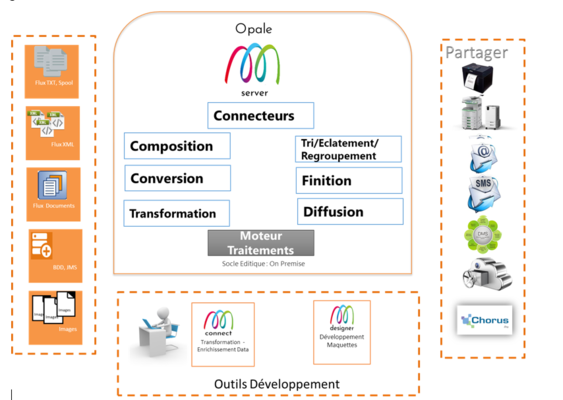OPALE - 10.0 - About - A propos de OPALE Server/en
Différence entre versions
De MappingDoc
| Ligne 10 : | Ligne 10 : | ||
Then, the rules engine determines the actions that will be executed on the detected input files. | Then, the rules engine determines the actions that will be executed on the detected input files. | ||
| − | OPALE Server | + | OPALE Server's main features include: |
| − | * | + | * Design templates out of spooled files or XML files by adding overlays, fonts and logos |
| − | * Convert a | + | * Convert a data stream from one language to another |
| − | * Print out | + | * Print out remapped documents in the native language of the printer |
| − | * | + | * E-mail remapped documents or send to a third-party solution |
Version du 31 mai 2019 à 07:45
OPALE Server is an application for processing document output on IBM i which includes a high-volume, high-performance composition engine enabling it to generate a huge number of documents in record time.
Supported OS: IBM Power i V7R1 or higher
OPALE Server is a subsystem of the OS/400.
A robot scans the outqueues to which the spooled files are sent.
Then, the rules engine determines the actions that will be executed on the detected input files.
OPALE Server's main features include:
- Design templates out of spooled files or XML files by adding overlays, fonts and logos
- Convert a data stream from one language to another
- Print out remapped documents in the native language of the printer
- E-mail remapped documents or send to a third-party solution
Additional features
- Processing of flows after mapping (sorting, merging, spliting, specific printing options, etc.)
- Support for thermal printers
- Omnichannel communication
- Electronic signature
- Connectors to archiving and dematerialization solutions
